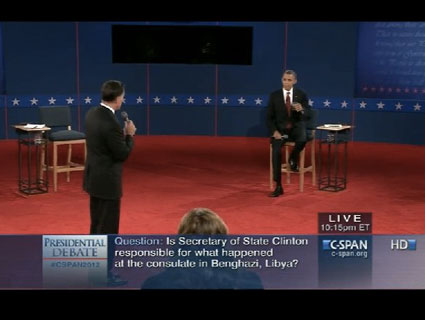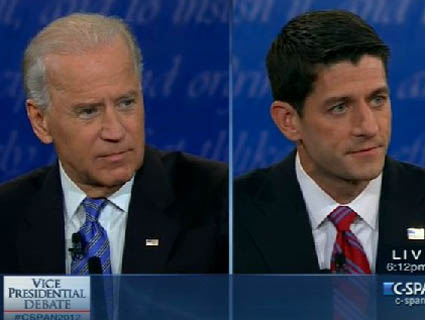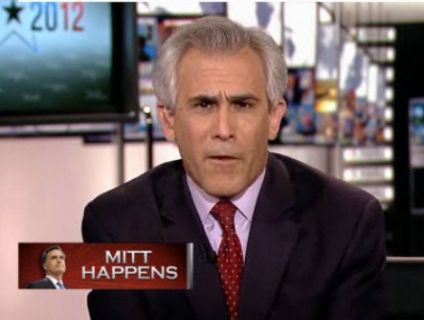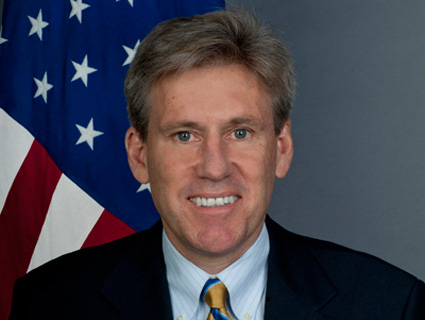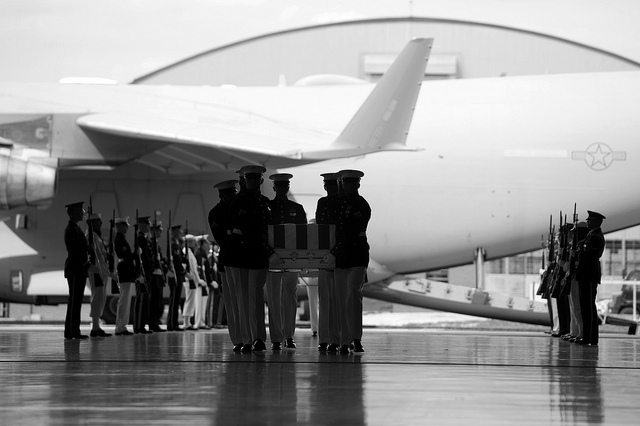
The caskets of US ambassador to Libya J. Christopher Stevens, foreign service officer Sean Smith, and security officers Tyrone S. Woods and Glen A. Doherty are escorted through an honor cordon during a transfer ceremony at Joint Base Andrews, Maryland, on Sept. 14, 2012.<a href="http://www.flickr.com/photos/secdef/7987131153/" target="_blank">Secretary of Defense</a>/Flickr
The reporting on what we know about the Benghazi attacks on September 11 just gets more and more interesting. Let’s do a quick Q&A:
Why was President Obama initially unwilling to call it an act of terror?
He wasn’t. The day after the attack, on September 12, he gave a Rose Garden speech in which he said, in reference to the assault, “No acts of terror will ever shake the resolve of this great nation.” At campaign stops that day and the next, he again referred to the Benghazi assault as “an act of terror.” A McClatchy report sums up the evidence: “In the first 48 hours after the deadly Sept. 11 attacks on U.S. diplomatic outposts in Libya, senior Obama administration officials strongly alluded to a terrorist assault and repeatedly declined to link it to an anti-Muslim video that drew protests elsewhere in the region, transcripts of briefings show.”
A day after the attacks, the CIA station chief in Libya reported to Washington that there were eyewitness reports that the attack was carried out by militants. Why didn’t Obama administration officials say so?
They did. Hillary Clinton, for one, referred to it as an attack “by a small and savage group.”
Okay, but that McClatchy report quoted above also says that a few days after the attacks administration officials started putting more emphasis on the “Innocence of Muslims” video. Why? It had nothing to do with the Benghazi attacks.
That’s not what locals said. As David Kirkpatrick reports: “To Libyans who witnessed the assault and know the attackers, there is little doubt what occurred: a well-known group of local Islamist militants struck the United States Mission without any warning or protest, and they did it in retaliation for the video…The fighters said at the time that they were moved to act because of the video, which had first gained attention across the region after a protest in Egypt that day.”
So the video might have played a role. But why did UN ambassador Susan Rice put the video front and center in her Sunday morning appearances a week after the attacks?
She didn’t, really. On Face the Nation, she said the “best information” at that moment suggested that Benghazi began “as a reaction to what had transpired some hours earlier in Cairo where […] there was a violent protest outside of our embassy sparked by this hateful video.” She then immediately added: “But soon after that spontaneous protest began outside of our consulate in Benghazi, we believe that it looks like extremist elements, individuals, joined in that effort with heavy weapons of the sort that are, unfortunately, readily now available in Libya post-revolution. And that it spun from there into something much, much more violent.”
Still, why even mention the video? By that point, wasn’t it clear that the real cause of the attacks lay elsewhere?
Not really. We now know that the CIA still believed the video was partly to blame for the violence. David Ignatius reports that a set of “talking points” prepared by the CIA on September 15, the day Rice taped her TV appearances, “support her description of the Sept. 11 attack on the U.S. Consulate as a reaction to Arab anger about an anti-Muslim video prepared in the United States. According to the CIA account, ‘The currently available information suggests that the demonstrations in Benghazi were spontaneously inspired by the protests at the U.S. Embassy in Cairo and evolved into a direct assault against the U.S. Consulate and 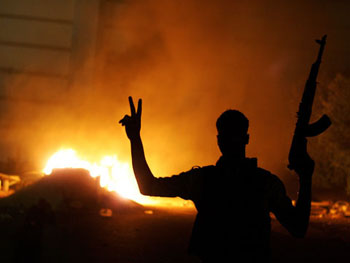 subsequently its annex. There are indications that extremists participated in the violent demonstrations.'”
subsequently its annex. There are indications that extremists participated in the violent demonstrations.'”
Fine. But why did Rice suggest that the attacks came after a “spontaneous” protest at the Benghazi consulate? There was no protest.
True, but Rice didn’t know that at the time because the CIA talking points still referred to “demonstrations” that had been inspired by the protests in Cairo. As David Martin reported: “Over that same weekend, US intelligence began to uncover evidence that there had not been a protest outside the consulate. That new intelligence did not get to Rice before she appeared on the Sunday talk shows, making her the target of Republican accusations the administration was trying to cover up the terrorist attack.”
But why did anyone think there was anything “spontaneous” about this in the first place? In fact, the assault on the consulate was preplanned by “Al Qaeda elements,” as Libyan President Mohammed Magarief said, wasn’t it?
No. The LA Times reports that Magarief was mistaken: “The assault on the U.S. diplomatic mission in Benghazi last month appears to have been an opportunistic attack rather than a long-planned operation, and intelligence agencies have found no evidence that it was ordered by Al Qaeda, according to U.S. officials and witnesses interviewed in Libya…The attack was ‘carried out following a minimum amount of planning,’ said a U.S. intelligence official…A second U.S. official added, ‘There isn’t any intelligence that the attackers pre-planned their assault days or weeks in advance.’ Most of the evidence so far suggests that ‘the attackers launched their assault opportunistically after they learned about the violence at the U.S. Embassy in Cairo’ earlier that day, the official said.”
Still, the Obama administration was negligent in refusing a stream of requests from American diplomats in Libya to provide more security, wasn’t it?
That’s possible. However, increased security probably wouldn’t have changed anything. As the New York Times reported a couple of weeks ago, “The requests were denied, but they were largely focused on extending the tours of security guards at the American Embassy in Tripoli—not at the diplomatic compound in Benghazi, 400 miles away.”
Bottom line: There were conflicting reports on the ground, and that was reflected in conflicting and sometimes confused reports from the White House. I don’t think anyone would pretend that the Obama’s administration’s response to Benghazi was anywhere near ideal. Nevertheless, the fact is that their statements were usually properly cautious; the YouTube video really did play a role; the attack was opportunistic, not preplanned; and it doesn’t appear to have had any serious connection with Al Qaeda. It’s true that it took about 10 days for all this to really shake out, but let’s be honest: 10 days isn’t all that long to figure out what really happened during a violent and chaotic attack halfway around the world. I get that it’s a nice opportunity for Republicans to score some political points in the runup to an election, but really, there’s not much there there.


